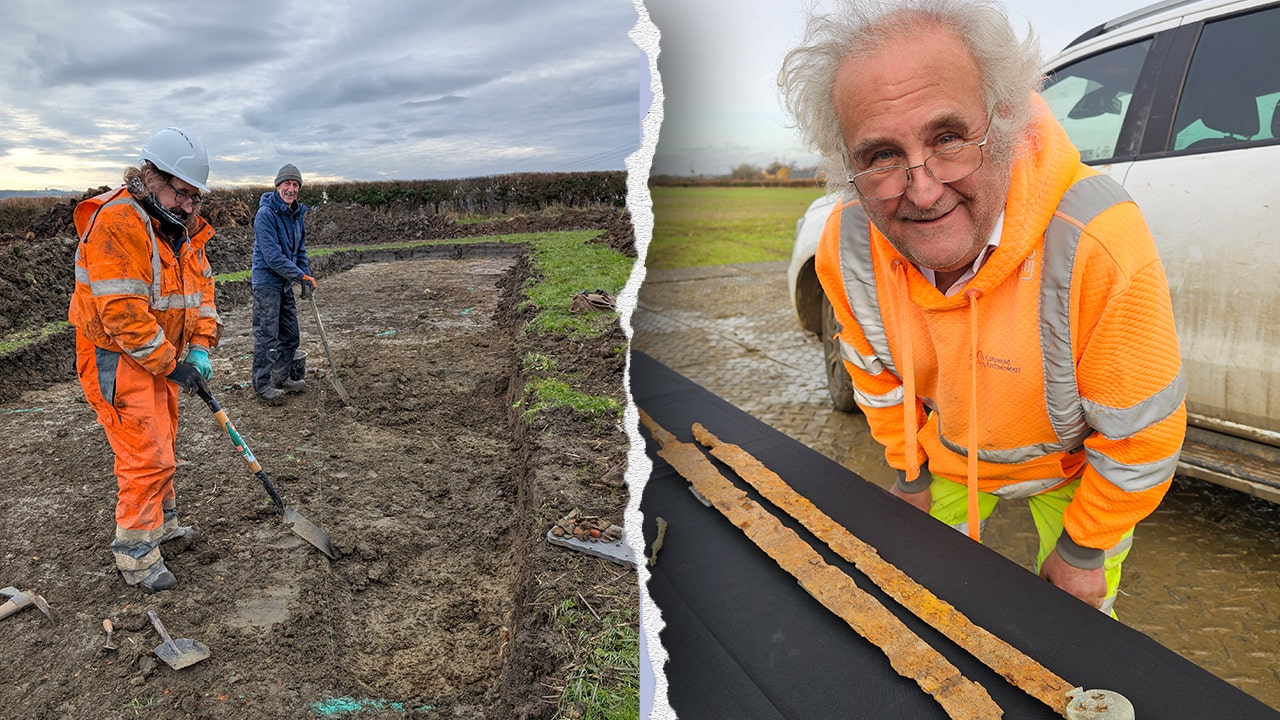Roman cavalry swords reveal ancient settlement in Gloucestershire
NEWYou can now listen to Fox News articles!
Archaeologists uncovered an “extensive” Ancient Roman settlement in an idyllic tourist destination in England – all thanks to the chance discovery of an amateur metal detectorist.
In a press release shared with Fox News Digital, Cotswold Archaeology announced the discovery of the Roman settlement in Gloucestershire, a county within the Cotswold region of England. (See the video at the top of this article.)
The settlement dates back 2,000 years; it was inhabited between the first and second centuries A.D. The excavation near Willersey was done as a joint effort with Historic England.
ARCHAEOLOGISTS UNCOVER LONG-LOST ANCIENT ROMAN BUILDING AT CONSTRUCTION SITE WITH A LITTLE HELP
Among the recent discoveries were a Roman villa, remains of limestone buildings — and at least three Iron Age ring ditches.
Excavators also found the remnants of Roman building materials, including ceramic roofing, painted wall plaster and box flue tiles.
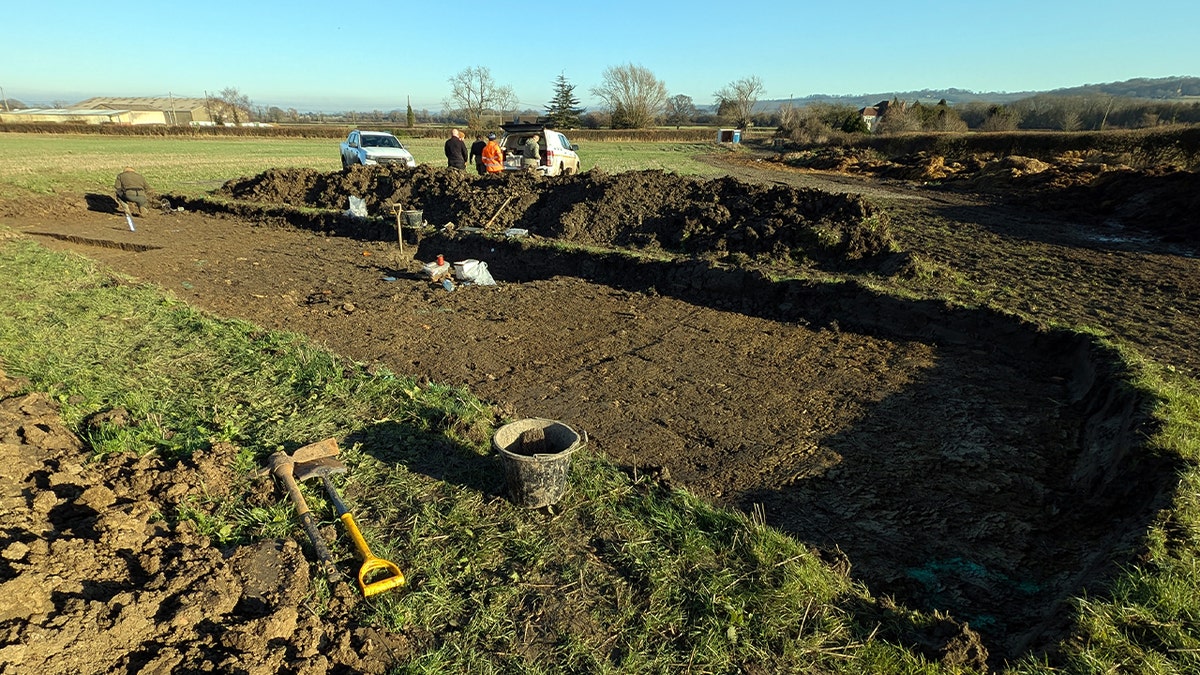
The remains of a Roman villa unearthed beneath a field in the Cotswolds, an idyllic part of England. (Cotswold Archaeology; Historic England)
“Once Historic England has the final report on the archaeological work, it will be able to consider whether to recommend to the Department for Culture, Media and Sport (DCMS) that the site be protected as a scheduled monument,” the statement said.
The recent excavation was all thanks to an amateur metal detectorist who found two iron Roman cavalry swords in the same location in March 2023.
LATE BRONZE AGE SETTLEMENT DATING BACK 3,000 YEARS UNCOVERED AMID ROAD WORK: ‘IMPORTANT DISCOVERY’
The hobbyist, Glenn Manning, reported his finds to the government, and they were subsequently donated to the local Corinium Museum in Cirencester.
“The X-rays show that the swords were constructed differently: one has evidence of decorative pattern welding running down the center, whereas the other sword is plain,” Cotswold Archaeology explained in its statement.
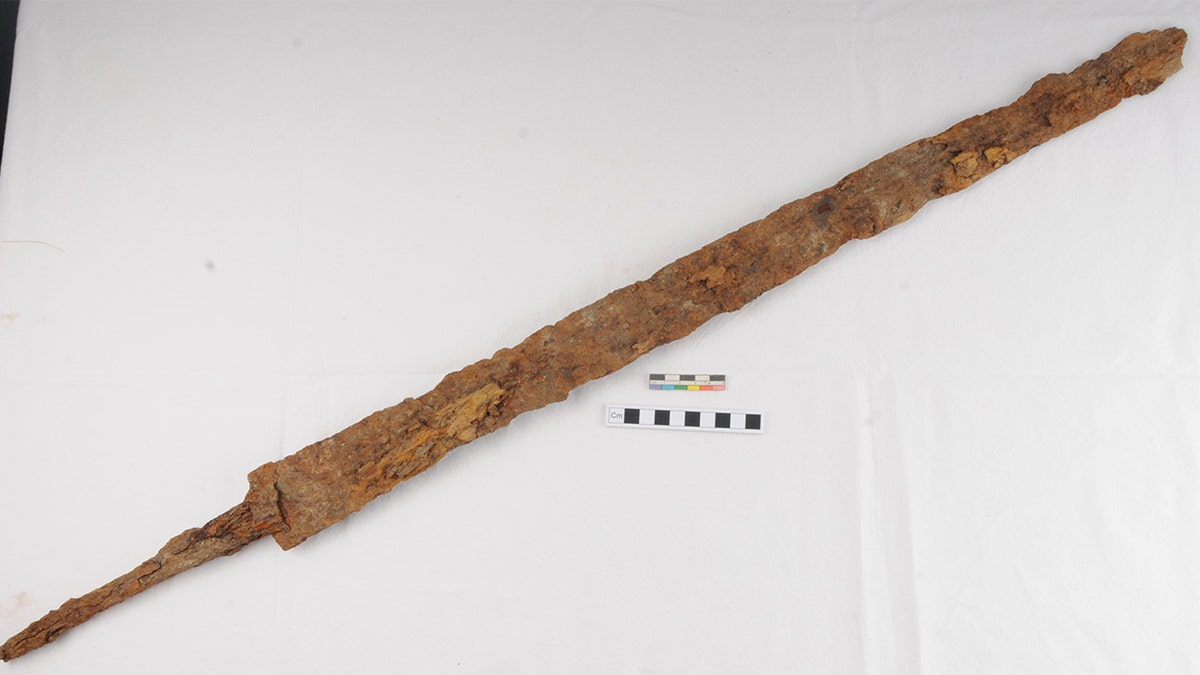
Glenn Manning, a newcomer to metal detecting, found Roman swords — one is seen above — buried beneath a quiet English field. (Cotswold Archaeology; Historic England)
“The pattern-welded sword would have been more expensive to produce and therefore higher status.”
“We turned a plowed field, the swords, and geophysical anomalies into the story of a settlement spanning hundreds of years.”
The long swords likely belonged to cavalrymen in the second century, the organization said.
“They are contemporary with the villa,” its statement added. “How they came to be there, though, is currently unknown.”
CLICK HERE TO SIGN UP FOR OUR LIFESTYLE NEWSLETTER
Near Willersley, archaeologists also uncovered a burial of a skeleton that still retained an iron band around its arm.
A horse skull was also found – but whether the remains date back to the Roman settlement is still unknown.
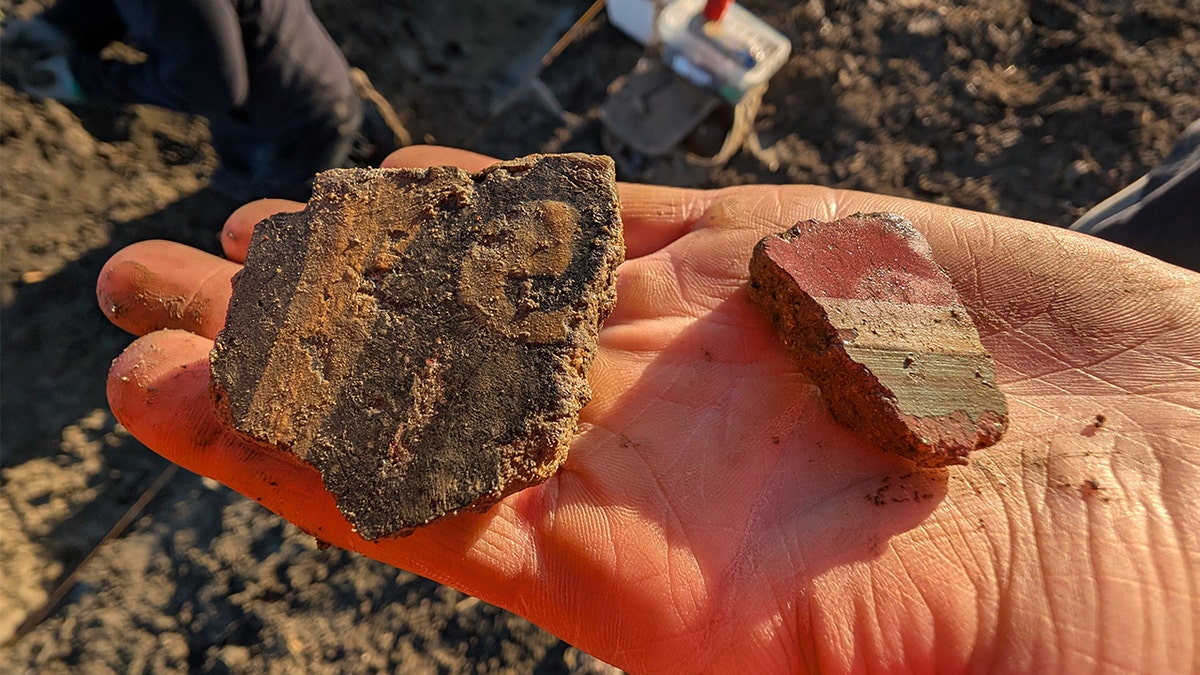
Archaeologists recovered pieces of painted wall plaster, likely part of an ornate interior from the Roman settlement. (Cotswold Archaeology; Historic England)
In a statement, Cotswold Archaeology onsite project officer Peter Busby said he was “very proud” of the achievement.
For more Lifestyle articles, visit foxnews.com/lifestyle
“We turned a plowed field, the swords, and geophysical anomalies into the story of a settlement spanning hundreds of years – the first stage in telling the history of these fields and their cavalry swords,” the archaeologist said.
“This was only my second time metal detecting. I’m excited to find out more about them.”
Glenn Manning, the metal detectorist who found the swords, described his experience as “amazing.”
He recalled, “The morning before the rally, I had a feeling I would find something special. This was only my second time metal detecting. I’m excited to find out more about them.”
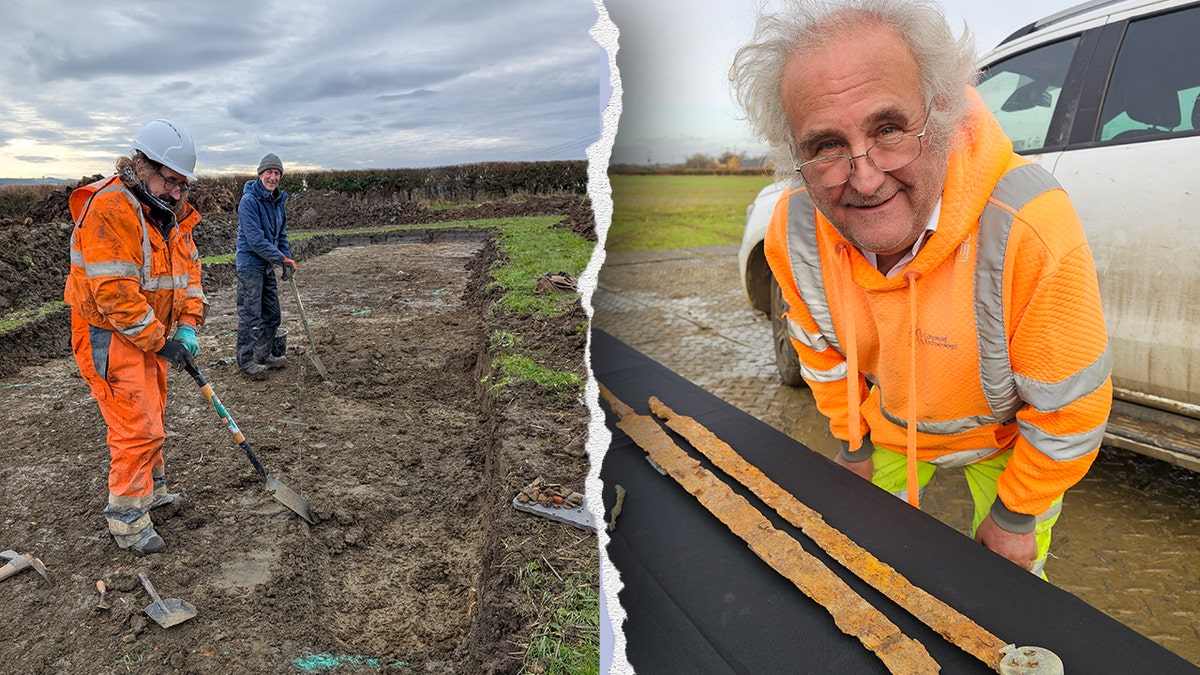
“We turned a plowed field, the swords, and geophysical anomalies into the story of a settlement,” said archaeologist Peter Busby, seen at right. (Cotswold Archaeology; Historic England)
The Romans occupied the British Isles from 43 A.D. until 410 A.D., and many remnants of the era still emerge today.
In May, British archaeologists announced the discovery of an unusual eight-sided Roman ring in a former drainage ditch in Lincolnshire.
CLICK HERE TO GET THE FOX NEWS APP
Before that, a Roman grave filled with gypsum was found during a highway construction project in England.
Source link
editor's pick
latest video
Sports News To You
Subscribe to receive daily sports scores, hot takes, and breaking news!

